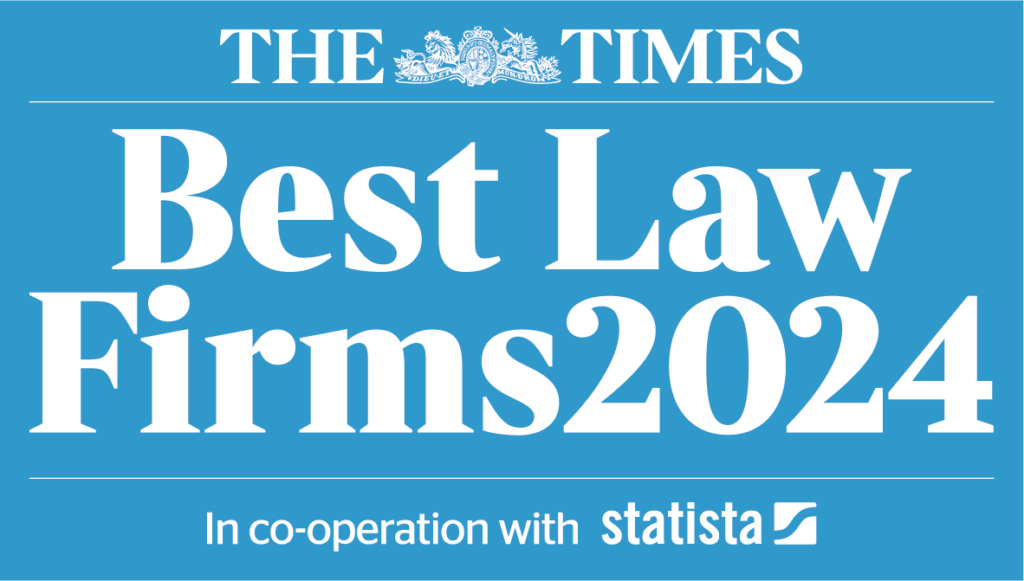Business
Ownership
Herrington Carmichael’s corporate law team provide a full range of corporate advisory and legal services in relation to the ownership, growth and structure of your business.
Business Ownership
We have a specialist team of solicitors who have a wealth of experience in advising companies and business owners on a full range of business ownership matters. We offer expert advice to entrepreneurs at every stage of the business life cycle with services ranging from advising on suitable business structures to set up your business to advising on the process and options available to exit or sell your company.
Structuring your business
At Herrington Carmichael we have specialist Corporate Lawyers who can help you explore which business structures are suitable and advantageous to you from a legal and commercial perspective.
What business structures are available?
Navigating the intricacies of structuring a business can be difficult, but the implications can be significant. Your structure may also need to change as your business develops and matures. Our corporate team can advise upon the most commercially suitable structure to ensure that the framework of your business matches your goals and corporate objectives.
Sole Trader – is an unincorporated business structure whereby a person owns and runs their business as an individual.
A Company limited by shares – a company which is a separate legal identity from its founders, benefitting from limited liability status for business debts. This type of business structure can be either public or private.
A Company limited by guarantee – a company which does not have share capital and which is most commonly used for not for profit organisations. The Members’ liability will be limited to the amount that they guarantee to contribute in the event that the company is wound up.
Unlimited Company – a company which does not have any limit on the liability of its members.
Limited Liability Partnership (LLP) – a hybrid between a limited company and a partnership which benefits from the flexibility of a partnership whilst still maintaining limited liability status.
Partnership – an unincorporated business structure which occurs when two or more people run and own a business together ‘with a view to make a profit’.
Partnerships & LLPs
Herrington Carmichael advises clients on all aspects of partnership law and we are trusted advisers to individuals and firms in a wide range of sectors. Our team understands the commercial and practical challenges that LLPs and partnerships face and our advice is tailored to suit the needs of your business.
We act for both firms and individuals at every stage of a partnership’s life cycle, be it at the start of a partnership or right the way to an exit or a dissolution of a partnership.
Our corporate team provide advice on a broad range of partnership related matters including:
- Setting up an LLP or converting your business from a general Partnership to an LLP
- Drafting a Partnership or an LLP Agreement
- Reviewing and advising upon the rights and obligations of a partner under an LLP or Partnership Agreement
- Exits and retirements from an LLP or Partnership
- Advising on the process for appointment or removal of a partner.
FAQs
What are the benefits of an LLP Agreement?
There are many benefits associated with LLP Agreements for the members of an LLP. The most common reasons we see members wanting to set up an agreement include:
- An LLP agreement is a legally binding contract which can act as a written constitution for an LLP.
- It provides greater flexibility outside of the default rules under the Limited Liability Partnership Act 2000 regulating LLPs. If any of the default rules do not suit your LLP or your expectations, an LLP agreement is a solution.
- It provides greater clarity on rights, obligations and liabilities, and provides protection for partners and the business whilst also helping avoid lengthy and costly disputes
Joint Ventures
A joint venture is where two or more businesses decide that they want to work together on a particular project. Joint ventures can take a variety of forms and, our corporate team offer a full range of services in relation to joint ventures, including:
- The set up of the new business
- Drafting joint venture agreements
- Reviewing existing joint venture agreements
- Advising on the potential structures of a joint venture
- Advice on exits from a Joint Venture
- Drafting bespoke Articles of association for the new joint venture entity.
Given the nature of a joint venture, it is imperative that each party’s obligations, expectations and rights are clearly established and agreed before any financial investment and / or intellectual property is created.
Our corporate advisory team understand the complexities involved in forming an effective joint venture and as such, we work closely with our clients to ensure their objectives are achieved. From initial negotiations to drafting joint venture agreements and implementing the business structure, we provide a complete service tailored to each client and their needs.
FAQs
What are the benefits to a Joint Venture agreement?
There are many benefits associated with joint venture agreements for businesses.
- It outlines the key expectations of the joint venture partners and sets out clearly each joint venture partners rights and obligations including when the ownership interests in the joint venture can be sold
- It provides greater clarity on rights and obligations of the joint venture partners which provides protection for the joint venture partners and helps avoid lengthy and costly disputes.
- A joint venture agreement is a private and confidential document.
Shareholder Agreements
A shareholder’s agreement is an agreement entered into by the shareholders of a company to regulate their relationship, the management of the business and the share capital of the Company.
A shareholder’s agreement can be used to regulate how shareholders sell shares, outline shareholder rights on exit, and impose restrictive covenants. Implementing a bespoke shareholders agreement is a valuable method of establishing the framework and vision of your business and the expectations of not only your company, but the shareholders too.
Our specialist team of corporate solicitors have a breadth of experience in drafting complex and unique shareholders agreements ensuring that each agreement is suitable for the structure and vision of the business involved. Our work also extends to reviewing shareholders agreements to advise clients whom are party to an existing agreement on their rights and obligations.
FAQs
What are the benefits to a shareholders agreement?
- Outlining the key expectations of the shareholders and setting out clearly each shareholder’s rights and obligations including when the shares in the company can be sold (which is not covered under the Companies Act 2006).
- Providing greater clarity on rights and obligations which provides protection for shareholders and helps avoid lengthy and costly disputes.
- Privacy & confidentiality. A shareholder’s agreement is a private and confidential document unlike Articles of Association which are a publicly filed document listed at Companies House. Any agreements between shareholders which are of a sensitive nature may be more suitable for a shareholder’s agreement.
What are typical provisions to include in a shareholders agreement?
- Director decision making and management: a shareholder agreement can determine matters such as the number of directors that must attend a board meeting for it to be validly held, the process for appointing and removing directors and whether there will be a chairperson with a casting vote.
- Drag along and tag along rights: drag along rights are a tool which enables majority shareholders to force minority shareholders to join in a sale of the Company. Tag along rights on the other hand, give minority shareholders the right to join in on a sale where a majority shareholder is selling their shares.
- Compulsory share transfers – Bad leaver provisions: bad leaver provisions can set out the circumstances where a shareholder will be forced to sell their shares, the procedure for doing so, and the price at which their shares will be sold at a reduced sale price. An example of a situation where you may want bad leaver provisions to apply is if another shareholder materially breaches their duties to the company.
- Pre-emption rights: Agreeing on express provisions in the Shareholders Agreement ensures that there is an agreed process for the sale of shares and clarity in relation to who the shares must be offered to. These provisions are crucial to protect a sale of shares to third parties and avoid the pitfalls of the legislation.
What are Drag Along and Tag Along Rights?
Drag along and tag along rights are pre-negotiated compulsory share transfer provisions that are contained in a shareholders agreement and/or a company’s articles of association. It is vital that as a business owner or investor, that you fully understand the importance and implications of drag and tag along rights when purchasing or selling shares in a business.
Business Exit
Our M&A team specialise in assisting and advising business owners with selling their businesses in a wide variety of sectors. As a full-service law firm, we are able to offer our clients solutions to a wide range of issues arising at each stage of the transaction. We understand the importance of getting the deal to sell your business correct on the first occasion which is why we work closely alongside our clients to understand what is fundamental to them.
Our corporate team has experience with business sales to include:
- management buy outs
- buy ins (including by way of investment)
- sales to third parties
Our corporate team also assist with shareholder exits or removals, be it pursuant to a compulsory share transfer agreement or a share buyout agreement whereby a shareholder has either agreed to leave the business or has been compelled to.
Business Ownership Disputes
Our Dispute Resolution Team advise business owners including partners, LLP members and both majority and minority shareholders on disputes arising from the actions of their fellow business owners.
Dispute between owners, management and directors of a businesses will have a big impact on the daily running of a business. You may well, as an owner, become embroiled in such a dispute.
We have many years’ experience of relationships breaking down within a business and we will be able to provide you with clear, concise and cost effective advice in finding the best way forward for you.
Our disputes services include:
- Director disputes
- Shareholder disputes
- LLP & Partnership disputes
Structuring your business
At Herrington Carmichael we have specialist Corporate Lawyers who can help you explore which business structures are suitable and advantageous to you from a legal and commercial perspective.
What business structures are available?
Navigating the intricacies of structuring a business can be difficult, but the implications can be significant. Your structure may also need to change as your business develops and matures. Our corporate team can advise upon the most commercially suitable structure to ensure that the framework of your business matches your goals and corporate objectives.
Sole Trader – is an unincorporated business structure whereby a person owns and runs their business as an individual.
A Company limited by shares – a company which is a separate legal identity from its founders, benefitting from limited liability status for business debts. This type of business structure can be either public or private.
A Company limited by guarantee – a company which does not have share capital and which is most commonly used for not for profit organisations. The Members’ liability will be limited to the amount that they guarantee to contribute in the event that the company is wound up.
Unlimited Company – a company which does not have any limit on the liability of its members.
Limited Liability Partnership (LLP) – a hybrid between a limited company and a partnership which benefits from the flexibility of a partnership whilst still maintaining limited liability status.
Partnership – an unincorporated business structure which occurs when two or more people run and own a business together ‘with a view to make a profit’.
Partnerships & LLPs
Herrington Carmichael advises clients on all aspects of partnership law and we are trusted advisers to individuals and firms in a wide range of sectors. Our team understands the commercial and practical challenges that LLPs and partnerships face and our advice is tailored to suit the needs of your business.
We act for both firms and individuals at every stage of a partnership’s life cycle, be it at the start of a partnership or right the way to an exit or a dissolution of a partnership.
Our corporate team provide advice on a broad range of partnership related matters including:
- Setting up an LLP or converting your business from a general Partnership to an LLP
- Drafting a Partnership or an LLP Agreement
- Reviewing and advising upon the rights and obligations of a partner under an LLP or Partnership Agreement
- Exits and retirements from an LLP or Partnership
- Advising on the process for appointment or removal of a partner.
Joint Ventures
A joint venture is where two or more businesses decide that they want to work together on a particular project. Joint ventures can take a variety of forms and, our corporate team offer a full range of services in relation to joint ventures, including:
- The set up of the new business
- Drafting joint venture agreements
- Reviewing existing joint venture agreements
- Advising on the potential structures of a joint venture
- Advice on exits from a Joint Venture
- Drafting bespoke Articles of association for the new joint venture entity.
Given the nature of a joint venture, it is imperative that each party’s obligations, expectations and rights are clearly established and agreed before any financial investment and / or intellectual property is created.
Our corporate advisory team understand the complexities involved in forming an effective joint venture and as such, we work closely with our clients to ensure their objectives are achieved. From initial negotiations to drafting joint venture agreements and implementing the business structure, we provide a complete service tailored to each client and their needs.
Shareholder Agreements
A shareholder’s agreement is an agreement entered into by the shareholders of a company to regulate their relationship, the management of the business and the share capital of the Company.
A shareholder’s agreement can be used to regulate how shareholders sell shares, outline shareholder rights on exit, and impose restrictive covenants. Implementing a bespoke shareholders agreement is a valuable method of establishing the framework and vision of your business and the expectations of not only your company, but the shareholders too.
Our specialist team of corporate solicitors have a breadth of experience in drafting complex and unique shareholders agreements ensuring that each agreement is suitable for the structure and vision of the business involved. Our work also extends to reviewing shareholders agreements to advise clients whom are party to an existing agreement on their rights and obligations.
Business Exit
Our M&A team specialise in assisting and advising business owners with selling their businesses in a wide variety of sectors. As a full-service law firm, we are able to offer our clients solutions to a wide range of issues arising at each stage of the transaction. We understand the importance of getting the deal to sell your business correct on the first occasion which is why we work closely alongside our clients to understand what is fundamental to them.
Our corporate team has experience with business sales to include:
- management buy outs
- buy ins (including by way of investment)
- sales to third parties
Our corporate team also assist with shareholder exits or removals, be it pursuant to a compulsory share transfer agreement or a share buyout agreement whereby a shareholder has either agreed to leave the business or has been compelled to.
Business Ownership Disputes
Our Dispute Resolution Team advise business owners including partners, LLP members and both majority and minority shareholders on disputes arising from the actions of their fellow business owners.
Dispute between owners, management and directors of a businesses will have a big impact on the daily running of a business. You may well, as an owner, become embroiled in such a dispute.
We have many years’ experience of relationships breaking down within a business and we will be able to provide you with clear, concise and cost effective advice in finding the best way forward for you.
Our disputes services include:
- Director disputes
- Shareholder disputes
- LLP & Partnership disputes
Legal Insights
Meet the Team
Related expertise
Best Law Firms 2024
Herrington Carmichael has once again been named in the Times Best Law Firms. We were first listed in 2023 and have once again made the Best Law Firms list for 2024.










